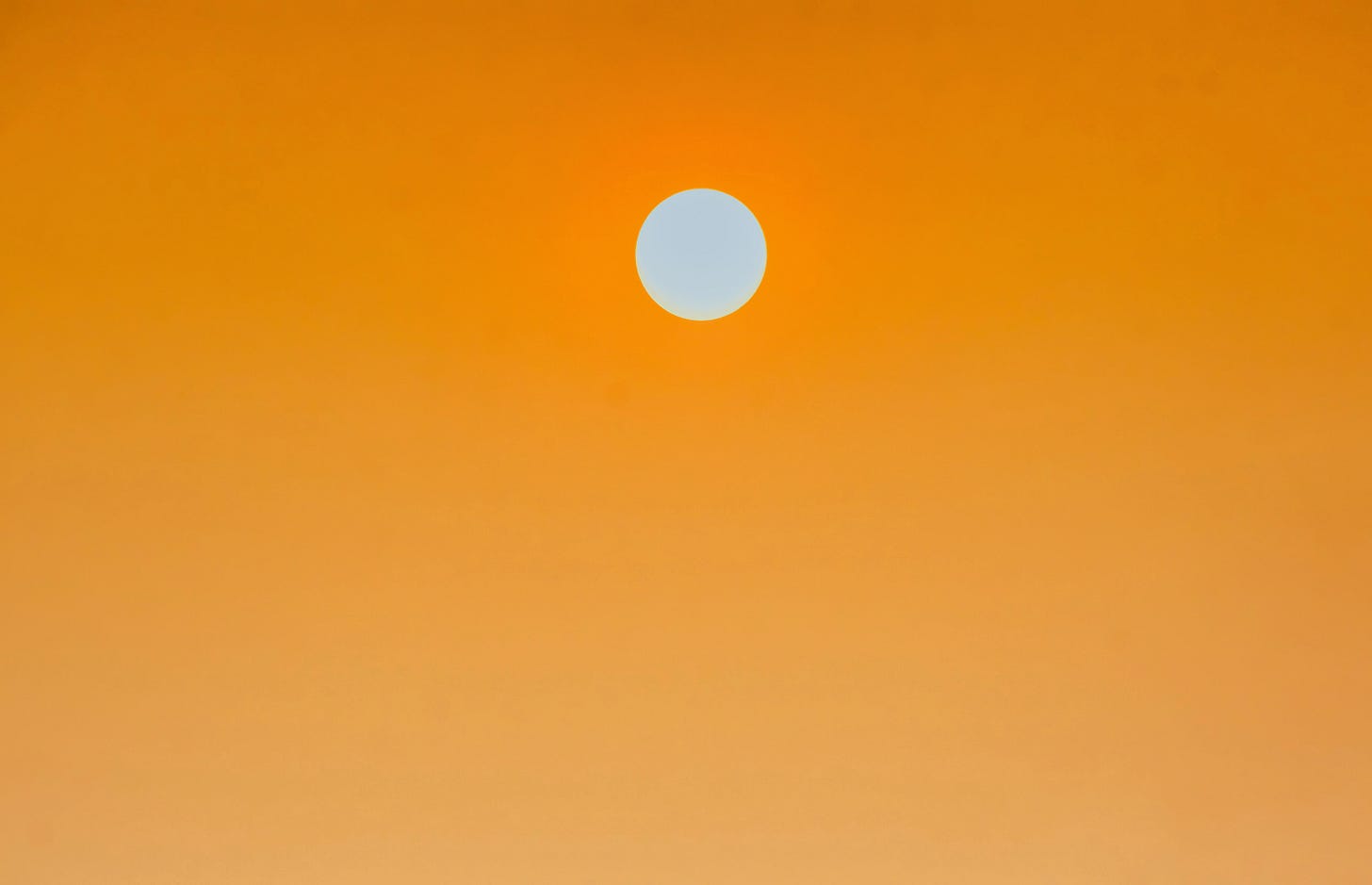The Heat is On
We no longer have anywhere to run
My wife has shaded her potted plants with a large painter’s cloth. The herbs in ceramic containers would roast if not protected from the unrelenting sun and heat, and the leaves would scorch, overheating enough to destroy the internal system that feeds them and keeps from wilting toward death. She waters regularly and conscientiously along the ground near the roots early in the morning. It’s not so much the humidity that stresses the plants, it’ the unforgiving temperature. What my wife does may be the only thing that keeps them alive.
Those plants might as well be us.
Greece is burning. The northern sections of the country have turned into tinderboxes due to soaring heat. The fires are largely uncontrolled. The Canadian forests are blackened by fires ignited by record temperatures, drought, and lightning-filled storms. These are the largest most devastating fires in Canada’s history of keeping records. All of this as we watch the body count rise in Hawaii.
Climate change is no longer a chart on a ecologist’s Power Point presentation. It’s the fire at our front door.
Want to see how widespread it is? The New York Times recently collaborated to record through images the destruction of our world. “Postcards From a World on Fire” captures 193 stories that shows how climate change has turned large swaths of our world into smoke and ash.
According to a number of different sources, nearly 6000 wildfires have consumed close to 59,000 square miles. One expert says that’s as if all of New York State was burning. It is a real-life horror show. We cannot deny what we have done to our planet.
Problem is, it might be too late to do anything about it. Maybe slow it down. But stop it? Not likely. Ask the experts, they’ll tell you the same.
So what do we do? Sit around and watch it burn?
Humans have always created their homes and villages under the belief that climate—the sun, the rain, the seasons—would remain stable entities, something we could rely on. This is no longer the case. That once stalwart constant is gone. That reality changes everything.
I don’t know what we do other than call out loudly and often. Yes, some of us have done that for decades and not much has changed. Look where we are. But it would be utter defeat, if not the beginning of the “end of days” if we now go quietly. Individually we may not be able to change the world, but we can insist that others help us. The experts are all around us. The scientists, the activists, even the politicians who appear, most of the time, to be superbly inept when it comes to this crisis. But we cannot become hopeless. We cannot go silent. The alternative is not an option.
Still, the world carries on. At this time of year, our attention is pulled in other directions. School has started for the season and parents are scurrying to help the children feel safe and successful. At the same time, the bigger world calls—a former president faces dozens of charges, Ukraine, urban shootings, crime, renewed worries about Covid. And then there are the pleasurable pursuits that easily distract us—the NFL season, the baseball playoffs, the Barbie movie.
This morning at our home outside Chicago, I stand at the kitchen window and watch my wife maneuver the garden hose and stand above a potted plant to offer it lifesaving relief while perspiration glistens on her arms and forehead, and the dog, first wanting to join her outside, snow stands at the back door after only a few minutes, begging to return to the relief of the cool air inside. And behind them both is a garden full of radiant color, A monarch butterfly floats above a flower. A squirrel watches from a branch of the magnolia. But this scene, one I have seen many, many times before, now carries with it a different element. Above the concrete sidewalk that runs to the door, heat rises in visual waves. It’s what the experts call a “heat mirage,” the same phenomenon that leads desperate desert travelers to a false rescue, the ghost of a crystal clear lake of fresh drinking water. It is Mother Nature playing a trick on us, a prank that seems now like a cruel joke.
Photo: Tom Fisk


